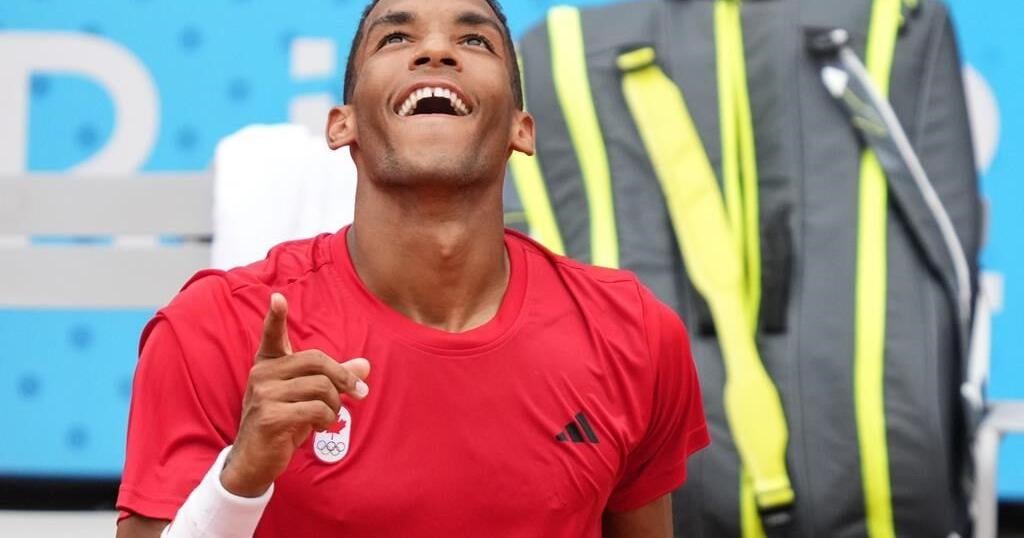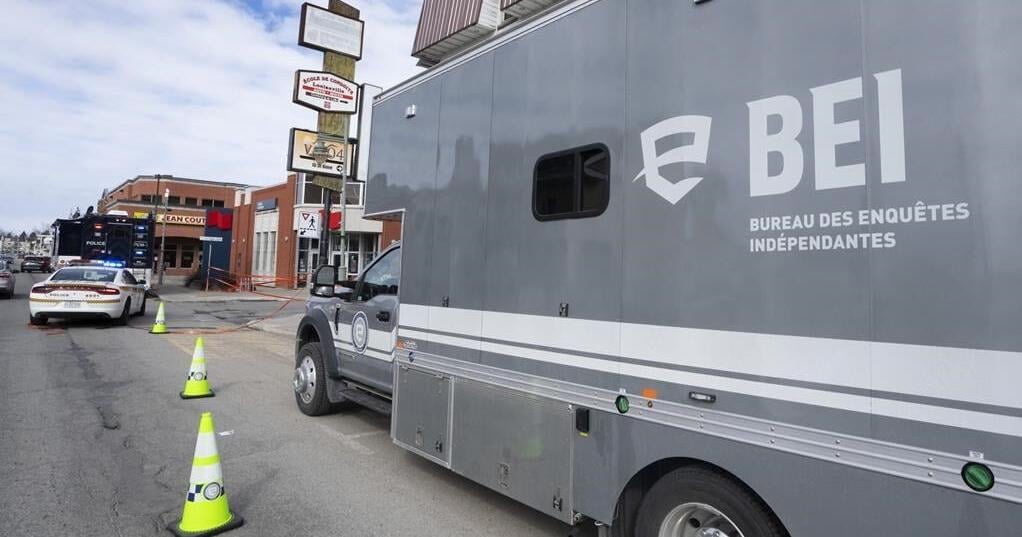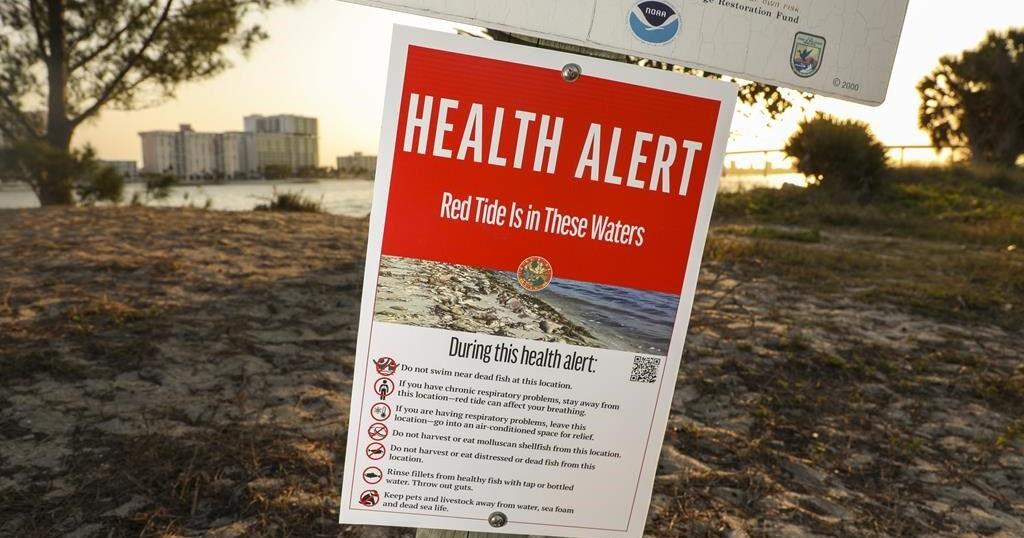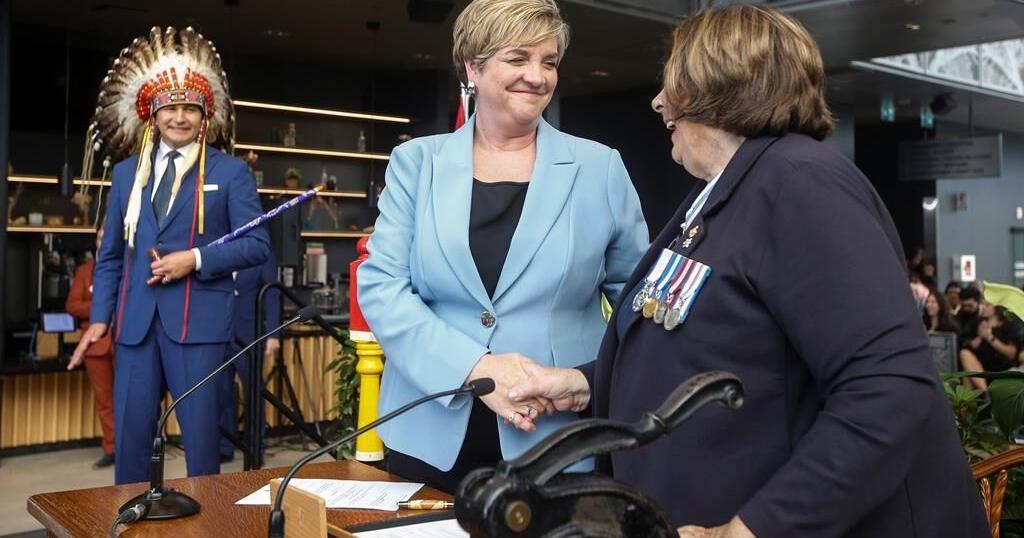PARIS – Ilya Kharun was third-fastest in the semifinals and the 19-year-old Montreal swimmer repeated that placing in Wednesday’s 200-metre butterfly final to earn a bronze medal at La Defense Arena.
Leon Marchand of France won the final in an Olympic record time of one minute 51.21 seconds, finishing ahead of Hungary’s Kristóf Milák (1:51.75) and Kharun.
Kharun, who grew up in Las Vegas, finished in 1:52.80. He is the first Canadian man to win an Olympic swim medal since 2012.
Trailing most of the race, Marchand surged past defending Olympic champion and world-record holder Milák to capture his second gold medal of the Paris Games. The Frenchman also won the 400 individual medley on Sunday.
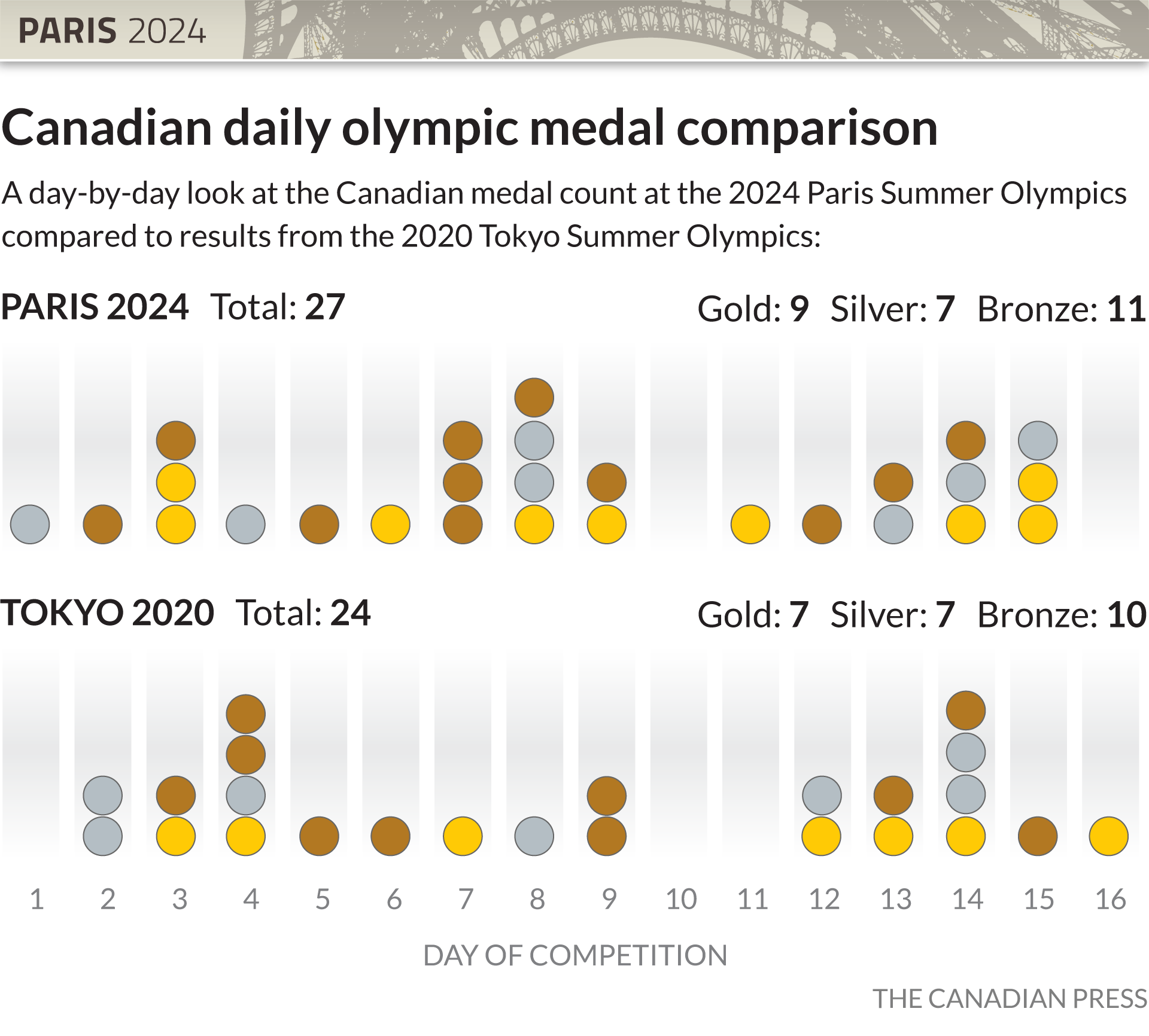
Meanwhile, the stakes are high for Canada’s Olympic women’s soccer team Wednesday as it heads into a must-win game against Colombia hours after a sports arbitration court upheld a six-point deduction in the wake of a drone spying scandal.
A sports arbitration court dismissed Canada’s appeal of the penalty against its women’s soccer team on Wednesday, meaning the defending Olympic champions have to win their final group stage match if they want to reach the knockout stage of the Olympic tournament.
The Court of Arbitration for Sport said it would release its reasons for the decision at a later date. The COC and Canada Soccer, meanwhile, thanked the court for its speedy ruling while expressing disappointment with the outcome.
The points deduction was part of a penalty imposed by governing body FIFA after a Canadian staffer was caught using a drone to spy on New Zealand team practices before the start of competition at the Paris Games.
Canada Soccer was also fined more than $300,000 and three team members, including head coach Bev Priestman, were suspended for one year.
The team is aiming to continue its medal streak after landing on the podium at the last three Games. Before taking home the gold in Tokyo, Canada won bronze in both the 2012 and 2016 Olympics.
Canadian tennis star Felix Auger-Aliassime is quarterfinal-bound. The Montreal native upset fourth-seeded Daniil Medevev in the third round of men’s singles on Wednesday, 6-3, 7-6 (5).
Auger-Aliassime, the 13th seed in Paris, fired nine aces and scored 73 points to Medvedev’s 59. Auger-Aliassime became the first-ever Canadian to reach the singles quarterfinals at an Olympic Games. He is the last Canadian standing in the men’s and women’s singles tournaments in Paris.
Medvedev, a Russian national, is competing as a neutral athlete in Paris. He had won each of his previous seven matches against Auger-Aliassime, but they all took place on hard courts. The Olympic tournament is being played on clay.
Gabriela Dabrowski of Ottawa and Laval, Que.-native Leylah Fernandez were eliminated in the second round of the women’s doubles tournament on Wednesday with a 6-4, 6-0 loss to neutral athletes Mira Andreeva and Diana Shnaider.
For a second Games in a row, Canadian diver Caeli McKay finished one spot short of the podium, although this time with a different partner.
McKay, who is from Calgary, narrowly missed out on the bronze by a half point in women’s 10-metre synchronized platform when paired with Meaghan Benfeito in Tokyo.
It wasn’t as close this time, with a roughly five-point difference separating her and Ottawa’s Kate Miller from the third-place winners, Great Britain’s Andrea Spendolini Sirieix and Lois Toulson.
Still, it was just as heartbreaking for McKay, who held back tears as she remarked that fourth place is the hardest to accept at the Olympics.
The Canadians were in third place before the fifth and final round of dives, when Spendolini Sirieix and Toulson performed their best dive of the competition while McKay and Miller appeared to slip up on their synchronization. The Canadian pair finished with a total of 299.22 points over the five dives.
China’s Chen Yuxi et Quan Hongchan dominated the competition with 359.10 points. The pair from North Korea, Jo Jin Mi and Kim Mi Rae, finished second with 315.90 points, and Great Britain third with 304.38.
Meanwhile, Canadian boxer Tammara Thibeault, who had been considered a favourite in Paris, was eliminated in the Round of 16 for the women’s 75-kilogram weight class.
Thibeault was on a 25-match winning streak before she was defeated Wednesday by Cindy Ngamba of the EOC Refugee Team, having not lost a fight since she was eliminated in the quarterfinals at the Tokyo Games.
Thibeault came to Paris as the reigning world champion — a title won in 2022 before several nations boycotted the 2023 world championships to protest against the International Boxing Association.
Canadian triathletes said they weren’t fazed by delays spurred by concerns over the safety of the water of the Seine, as both the men’s and women’s events took place Wednesday.
Tyler Mislawchuk of Winnipeg finished ninth and Charles Paquet of Port-Cartier, Que. finished 13th in the men’s competition, while Emy Legault of L’Île Perrot, Que., Canada’s lone representative in the women’s competition, finished 35th.
Canada improved to 2-0 in women’s 3×3 basketball with a convincing 21-11 win over China (1-1). Canada, consisting of sisters Michelle and Katherine Plouffe, Paige Crozon and Kacie Bosch, will face Germany (1-1) on Thursday.
Alex Yee of Great Britain won the men’s triathlon in one hour 44 minutes and 33 seconds, which was initially scheduled for Tuesday, but was rescheduled to Wednesday due to poor water quality. Tyler Mislawchuk of Oak Bluff, Man., finished ninth in 1:44:25. Charles Paquet of Port-Cartier, Que., was 13th in 1:44:37.
Cassandre Beaugrand of France won the women’s triathlon in 1:54:55. Emy Ligault of L’lle Perrot, Que., finished 35th in 2:01:54.
This report by The Canadian Press was first published July 31, 2024.

